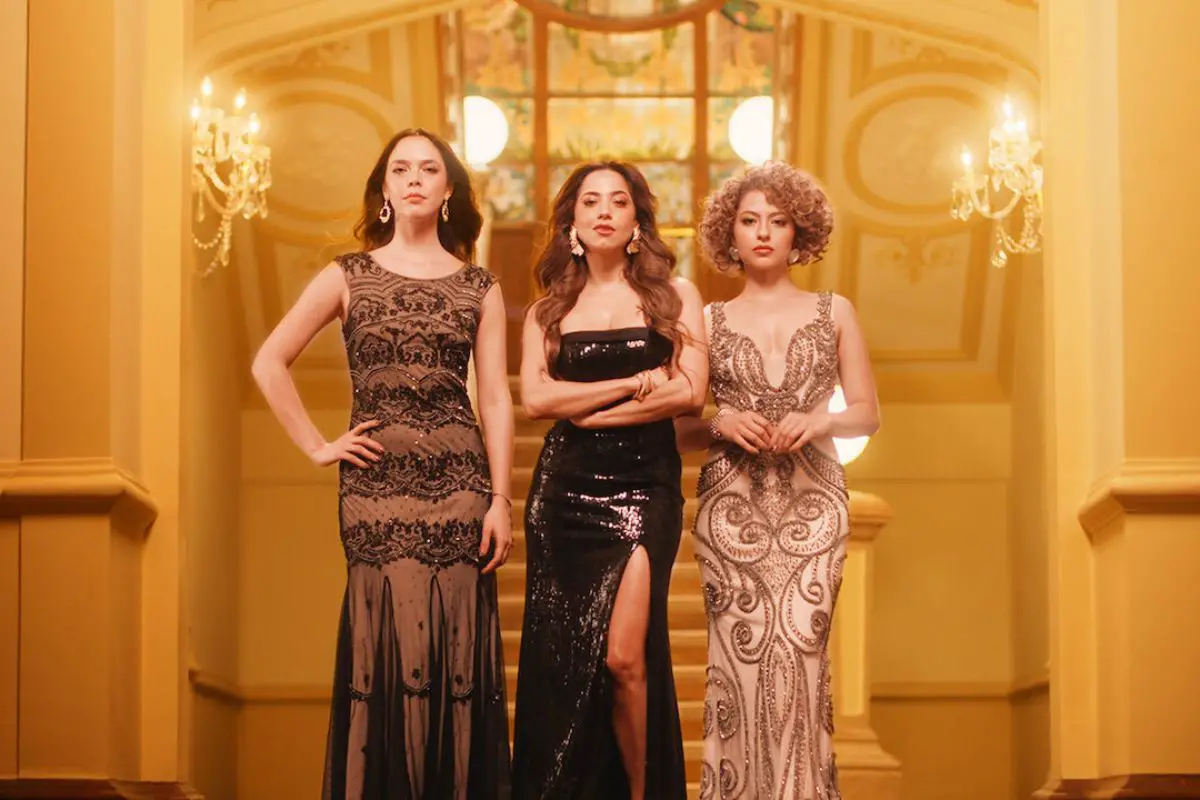KLASS 95: The Power of Beauty is a Colombian romantic drama series that dives deep into the world of glamour, ambition, and the harsh realities of success. Starring Nicole Santamaría, Edwin Riveros, Valeria Gálviz, Juana Arboleda, and David Palacio, the series debuted on Netflix on September 20, 2024. This review explores the strengths and weaknesses of the show, analyzing its narrative, performances, and overall impact.
A Story of Ambition and Consequences
The series centers around Shaio Domínguez (played by Nicole Santamaría), a young woman who discovers the power and influence that come with beauty and fame. Initially, she revels in the perks of her newfound status—money, recognition, and authority. As her influence grows, she becomes a pivotal figure in the beauty industry, capable of shaping careers with a single decision.
However, the story soon takes a darker turn. Shaio realizes that her ascent has come at a cost. She is surrounded by sycophants and yes-men, and the once-glamorous life she enjoyed begins to unravel. Struggling to maintain control over her personal and professional life, she confronts the harsh reality that beauty and power can be fleeting and destructive forces.
Themes and Messaging
KLASS 95 presents itself as a cautionary tale about the dangers of unchecked ambition and the superficial allure of beauty. Through Shaio’s journey, the show attempts to explore deeper themes such as the emptiness of fame, the pressures of maintaining success, and the inevitable downfall that follows a life built on superficial values.
While the show’s thematic intentions are clear, the execution sometimes falters. The messaging often feels forced, with certain scenes seeming more concerned with delivering moral lessons than advancing the plot. This can make the story feel somewhat disjointed, as though the narrative is playing second fiddle to the series’ broader philosophical aims.
Performances and Character Arcs
Nicole Santamaría delivers a compelling performance as Shaio, capturing the character’s transformation from a self-assured, powerful figure to a woman grappling with the consequences of her choices. Her portrayal of Shaio’s gradual descent into isolation and regret is nuanced and believable, making her the emotional core of the series.
The supporting cast also does a commendable job, particularly in portraying the various personalities that orbit Shaio’s world—friends, rivals, and lovers who are drawn to or repelled by her influence. Each character’s relationship with Shaio adds layers to the story, illustrating how power dynamics shift in the face of changing fortunes.
However, despite these strong performances, the characters sometimes feel underdeveloped. The series introduces intriguing subplots and character arcs but doesn’t always follow through, leaving some storylines feeling unresolved or superficial.
A Lengthy Affair: Pacing and Structure
One of the major criticisms of KLASS 95: The Power of Beauty is its length. Spanning 18 episodes, the series often feels stretched beyond what the narrative can sustain. While some episodes contain compelling moments, others meander, repeating themes and conflicts that have already been addressed.
This excessive length dilutes the impact of the story, making it difficult for the audience to stay engaged. Several episodes could have been condensed or eliminated without losing the essence of the narrative. A shorter, more focused series would have allowed for a tighter plot and more impactful storytelling.
The Visual Appeal
Despite its flaws, KLASS 95 excels in its visual presentation. The series is set against the vibrant, colorful backdrop of Colombia’s fashion and beauty industry, with stunning cinematography that captures the allure and superficiality of Shaio’s world. The contrast between the glitzy exterior and the turmoil beneath the surface is effectively highlighted through the show’s visual language.
Costume design and set pieces play a significant role in establishing the series’ atmosphere, underscoring the themes of opulence and decay. The glamorous settings provide a sharp juxtaposition to Shaio’s inner struggles, emphasizing the show’s critique of a life dedicated to surface appearances.
A Missed Opportunity
Ultimately, KLASS 95: The Power of Beauty is a mixed bag. The series has the makings of a powerful drama about ambition, beauty, and downfall, but it stumbles in its execution. The length and pacing issues detract from what could have been a sharp, incisive look at the dark side of success.
The performances, particularly Santamaría’s, are strong, and the series boasts impressive production values. However, the writing often feels heavy-handed, and the story loses momentum under the weight of its own ambition. With tighter editing and a more streamlined narrative, KLASS 95 could have been a standout drama. As it stands, it’s a decent watch that falls short of its full potential.
Conclusion
KLASS 95: The Power of Beauty is a show that attempts to tackle big themes but struggles to keep the audience’s attention over its lengthy runtime. While it offers a cautionary tale about the perils of ambition and the ephemeral nature of beauty, the series would have benefited from a more concise and focused approach.
For viewers interested in stories about the darker side of fame and power, KLASS 95 is worth a watch, albeit with tempered expectations. It’s a flawed but intriguing addition to Netflix’s lineup of international dramas, showcasing the talents of its cast and creators while reminding us of the price of pursuing beauty at all costs.

